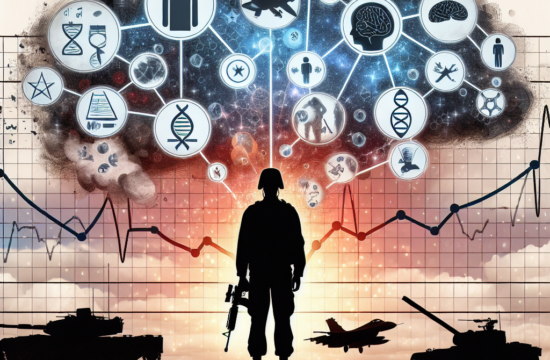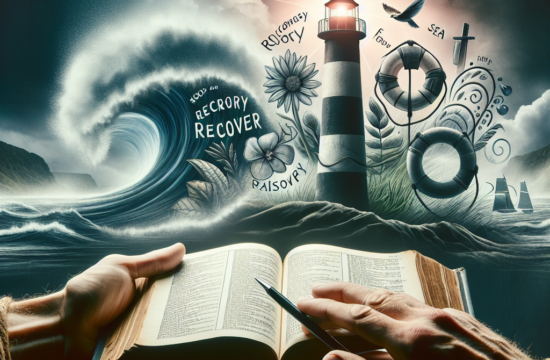==> Thank you for reading this post! Click Here If you are looking for support and Victory over PTSD.
The Truth About Military Trauma Support for Veterans
- Understanding Military Trauma
- Importance of Support Systems
- Available Resources for Veterans
- Creating a Community of Support
Understanding Military Trauma
Defining Military Trauma
Alright, let’s dive into this thing called military trauma. It’s crucial to get a grasp on what we’re dealing with before we launch into solutions or support systems. Military trauma can arise from a wide range of experiences, from combat exposure to witnessing horrific events. It’s like carrying a weight that not everyone can see, you know?
When I first began to understand the complexity of military trauma, it hit me just how layered it is. Some veterans might experience PTSD, while others deal with anxiety or depression. The spectrum of feelings and experiences is vast, and recognizing that is the first step in addressing the issue effectively.
So, the next time someone mentions military trauma, don’t just think of it in black and white. Understand that it’s a multi-faceted experience that looks different for every individual. Each person’s journey is unique, and empathy is the key to connecting with those who have served.
Common Symptoms and Effects
Next, let’s talk about the symptoms. This part can be tough because many veterans don’t want to admit they’re struggling. Common symptoms include flashbacks, nightmares, and emotional numbness. I’ve seen friends cope in different ways, some through avoidance, while others might turn to unhealthy habits.
What really stands out, though, is the ripple effect trauma can have. It doesn’t just affect the individual; it impacts families and communities too. Relationships can become strained, and sometimes the isolation can feel overwhelming. It’s a tough cycle that, if left unaddressed, can spiral out of control.
Understanding the symptoms helps in creating better awareness, and that’s essential for recovery. So share what you learn and encourage open conversations about these experiences. It’s all about less stigma and more understanding!
The Impact of Military Culture
Let’s not forget about military culture itself. There’s this strong emphasis on resilience and a “tough it out” mentality that often discourages veterans from seeking help. I’ve spoken to many veterans who felt like they couldn’t show weakness, which only deepens their struggles.
This cultural background can make the journey to recovery seem daunting. It’s like navigating a minefield of expectations and norms. Realizing this allows us to create a more supportive environment, one where it’s okay to reach out for help—because it absolutely is.
By acknowledging and addressing these cultural factors, we can start breaking down those barriers. It’s about reshaping the narrative surrounding mental health in the military—one conversation at a time.
Importance of Support Systems
The Role of Family and Friends
When it comes to support systems, it starts right at home. I can’t stress enough how vital family and friends are in the healing process. They’re often the first line of defense against the isolation that trauma can bring. A simple call, a dinner invite, or just hanging out can make a world of difference.
But here’s the kicker: it’s not always easy for families to know how to help. They might not understand what their veteran is going through, and that’s okay. What matters is showing love and being there. Sometimes just listening can be more therapeutic than any conversation about feelings.
So if you’re a family member or friend, try to educate yourself on the symptoms of military trauma. This understanding will enable you to provide more meaningful support. It’s a journey together, and being informed goes a long way!
Building Peer Support Networks
Peer support networks are another treasure trove when it comes to healing. There’s something magical about connecting with someone who truly understands your experience. In these groups, veterans find a safe space to share their stories, the highs and the lows.
I’ve participated in several peer-led support groups, and honestly, it was game-changing. The camaraderie and understanding present in those circles are unparalleled. You laugh, you cry, and most importantly, you heal together. There’s power in shared experiences.
So, if you’re a veteran reading this, I urge you to seek out these communities. If they’re not available, consider starting one! It’s often the connections fostered in these groups that lead to breakthroughs in healing.
Professional Support and Therapy
While friends and peers are fantastic, let’s not forget about professional support. Talking to a therapist who understands military trauma can provide such depth to the healing process. I know it’s tough to take that step, but trust me, it’s worth it.
Therapists can offer tools and strategies that friends and family just can’t provide. From CBT to exposure therapy, these professionals have a bag of tricks designed to help veterans work through their trauma. Each method is tailored to fit individual needs, so don’t be afraid to shop around for someone who clicks with you.
Remember, seeking help doesn’t make you weak; it’s a sign of strength and determination to overcome. We all need a little guidance now and then, and that’s more than okay!
Available Resources for Veterans
Government Programs and Initiatives
The first stop when searching for help should be government programs specifically dedicated to veterans. There are various initiatives out there aimed at providing mental health support. The U.S. Department of Veterans Affairs has an array of programs tailored to help veterans cope with trauma-related issues.
These programs often include counseling services, treatment for PTSD, and even financial assistance for veterans seeking therapy. So, don’t hesitate to reach out to these institutions; they’re here to help!
Get Started with Recovery! Visit us for more Information and Support
Now, navigating this bureaucracy can feel overwhelming at times—I get it. Take it step by step, and don’t hesitate to ask for help in accessing these resources. You’re not alone on this journey.
Non-Profit Organizations and Community Programs
Beyond government support, tons of non-profit organizations are doing amazing work for veterans. Groups like Wounded Warrior Project and Team Rubicon offer a variety of services that make a huge difference in the lives of veterans struggling with mental health issues.
Whether it’s through community events, skill-building workshops, or peer support, these organizations fill in the gaps and provide what’s often missing in traditional settings. It’s like being in a world where people genuinely care and understand your journey.
Participating in these programs can also provide a sense of purpose and belonging. Plus, you get to meet fellow veterans and create new friendships that last beyond the program. That’s pretty darn special!
Online Resources and Virtual Support
Hey, let’s not forget about the digital world! Online resources have exploded in recent years, offering veterans a wealth of information and support at their fingertips. From forums and chat groups to telehealth services, you can find what you need from the comfort of your home.
Websites dedicated to veterans’ mental health provide access to articles, self-help tools, and even online therapy options. This can be a game-changer for those who may feel anxious about seeking help in person.
So, embrace technology; it has made it easier than ever to find support. Use these resources wisely, and always remember that taking that first step is what counts.
Creating a Community of Support
Fostering Open Conversations
Building a supportive community starts with fostering open conversations about military trauma. The more we talk about it, the less stigma is associated with seeking help. Share your stories, experiences, and insights with others. You’d be amazed at how cathartic it can be.
Encouraging others to share their experiences can create an atmosphere of trust. It’s all about opening those doors for dialogue. When we normalize these conversations, it empowers others to seek support without feeling judged or misunderstood.
So, be that person who initiates the talk. Ask questions, listen attentively, and let others know they’re not alone in their struggles. Your voice can inspire change.
Active Participation in Support Programs
Now that we’re all chatting about it, let’s take the next step and actively participate in support programs. Volunteer for local organizations, start initiatives, or simply get involved in community efforts aimed at helping veterans. Your involvement can bring fresh perspectives and ideas!
I’ve seen firsthand how participating in these programs can uplift both the veteran and the community. It creates a ripple effect, encouraging others to join in and support one another. It’s like a movement of healing and growth.
Plus, there’s nothing quite like the camaraderie built from working toward a common goal. Everyone’s invested in making a positive change, and that’s something truly powerful.
Long-term Commitment to Healing
Lastly, let’s talk about the long game. Creating a supportive environment isn’t a sprint; it’s a marathon. Our commitment to supporting veterans should be ongoing, even when the spotlight moves elsewhere. Stay engaged in conversations and continually advocate for mental health awareness.
As friends, families, or community members, we have a role in ensuring that our veterans feel valued and supported well beyond their service. Recovery is often a long journey, and having consistent support is crucial in that process.
Let’s pledge to stick together through thick and thin, creating an unbreakable bond of support not just for veterans but for anyone struggling with trauma. Together, we can make a massive difference!
FAQ
What is military trauma?
Military trauma encompasses the psychological effects that service members may experience due to combat or other military-related events. This can include PTSD, anxiety, depression, and other mental health challenges.
Why are support systems important for veterans?
Support systems are vital because they provide a network of understanding and empathy. They can help mitigate feelings of isolation and encourage individuals to seek help, making the recovery process smoother.
What resources are available for veterans dealing with trauma?
There are numerous resources available, including government programs through the Department of Veterans Affairs, non-profit organizations, peer support groups, and online resources like virtual therapy and forums.
How can I help create a supportive community for veterans?
You can help by fostering open conversations about military trauma, actively participating in support programs, and committing to long-term initiatives promoting mental health awareness. Every small step counts!












